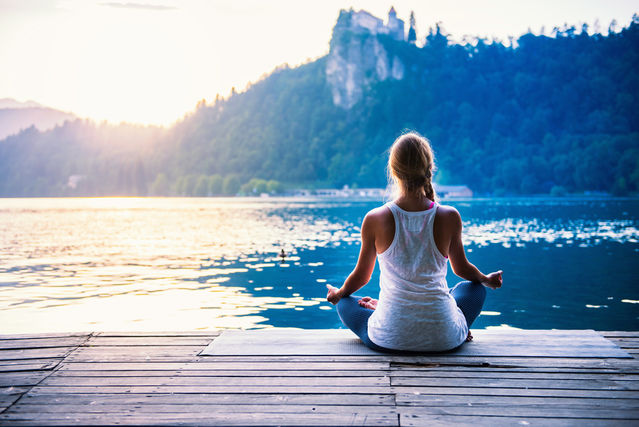By Amy Morin
The great outdoors offers many opportunities to build mental muscle.
Not all muscle is built in the gym—especially when it comes to mental muscle. And the best news is, becoming mentally stronger doesn’t necessarily involve putting yourself through a grueling mental workout.
While there are many exercises you can do every day to build mental strength, one of the easiest things you can do is to spend time in nature. Whether you go for a walk in the woods or you eat a picnic in a park, time in nature could be key to building a strong mind.
1. Spending Time in Nature Improves Your Mental Health
Many studies have found that the great outdoors can boost your happiness. But a 2015 study conducted by researchers at Stanford found that a walk in the woods can lower your risk of depression.
Other research has found that people living in rural areas have a 20 percent lower risk of anxiety and a 40 percent lower risk of mood disorders compared to people living in urban areas. Perhaps the green spaces in the country have something to do with that.
2. Walking in Green Space Reduces Mental Fatigue
A 2013 study published in the British Journal of Sports Medicine found that walking a half-mile through a park reduces brain fatigue. Scientists have known for some time that the human brain’s ability to stay focused is limited and the constant noise and demands of living in the city lead to mental fatigue.
Nature, however, offers a calming effect and requires less mental attention than busy urban streets. So a quick walk in the park on your lunch break or stroll through a botanical garden on the weekend could offer the mental rejuvenation you need to stay focused when you’re tackling a tough project.
3. Looking at Landscapes Reduces Emotional and Physical Pain
If you live in an urban area and you don’t have any parks close by, you’re not out of out of luck. You may be able to reap a few benefits from nature by simply looking at landscape pictures.
Researchers discovered that hospital spaces with a window overlooking green space heal faster than other patients. Since not everyone can have a window with a view, researchers tested what happens when patients looked at pictures of landscapes. They discovered looking at pictures of nature reduced pain and decreased anxiety.
4. Watching the Ocean Reduces Stress
If you’re fortunate to live near the coast, spend time watching the ocean. A 2016 study published in Health & Place, found that spending time on the ocean reduces the likelihood of developing depression and anxiety.
In addition to increasing your sense of inner calm, the water has also been found to boost creativity. So you may want to spring for the hotel room with an ocean view on your next vacation.
Build Your Mental Muscle
Everyone has the ability to develop more mental muscle. And while becoming stronger sometimes involves giving up the bad mental habits that hold you back, you can also build strength through the simple everyday choices you make.
So get outside and spend a little time in nature. Not only could it be good for your physical health, but it’s also an easy way to improve your psychological well-being.
References
Aspinall, P., Mavros, P., Coyne, R., & Roe, J. (2013). The urban brain: analysing outdoor physical activity with mobile EEG. British Journal of Sports Medicine, 49(4), 272-276. doi:10.1136/bjsports-2012-09187
Bratman, G. N., Hamilton, J. P., Hahn, K. S., Daily, G. C., & Gross, J. J. (2015). Nature experience reduces rumination and subgenual prefrontal cortex activation. Proceedings of the National Academy of Sciences,112(28), 8567-8572. doi:10.1073/pnas.1510459112
Lankston, L., Cusack, P., Fremantle, C., & Isles, C. (2010). Visual art in hospitals: case studies and review of the evidence. Journal of the Royal Society of Medicine, 103(12), 490-499. doi:10.1258/jrsm.2010.100256
Nutsford, D., Pearson, A. L., Kingham, S., & Reitsma, F. (2016). Residential exposure to visible blue space (but not green space) associated with lower psychological distress in a capital city. Health & Place, 39, 70-78. doi:10.1016/j.healthplace.2016.03.002
Psychology Today © 2018 Sussex Publishers, LLC
